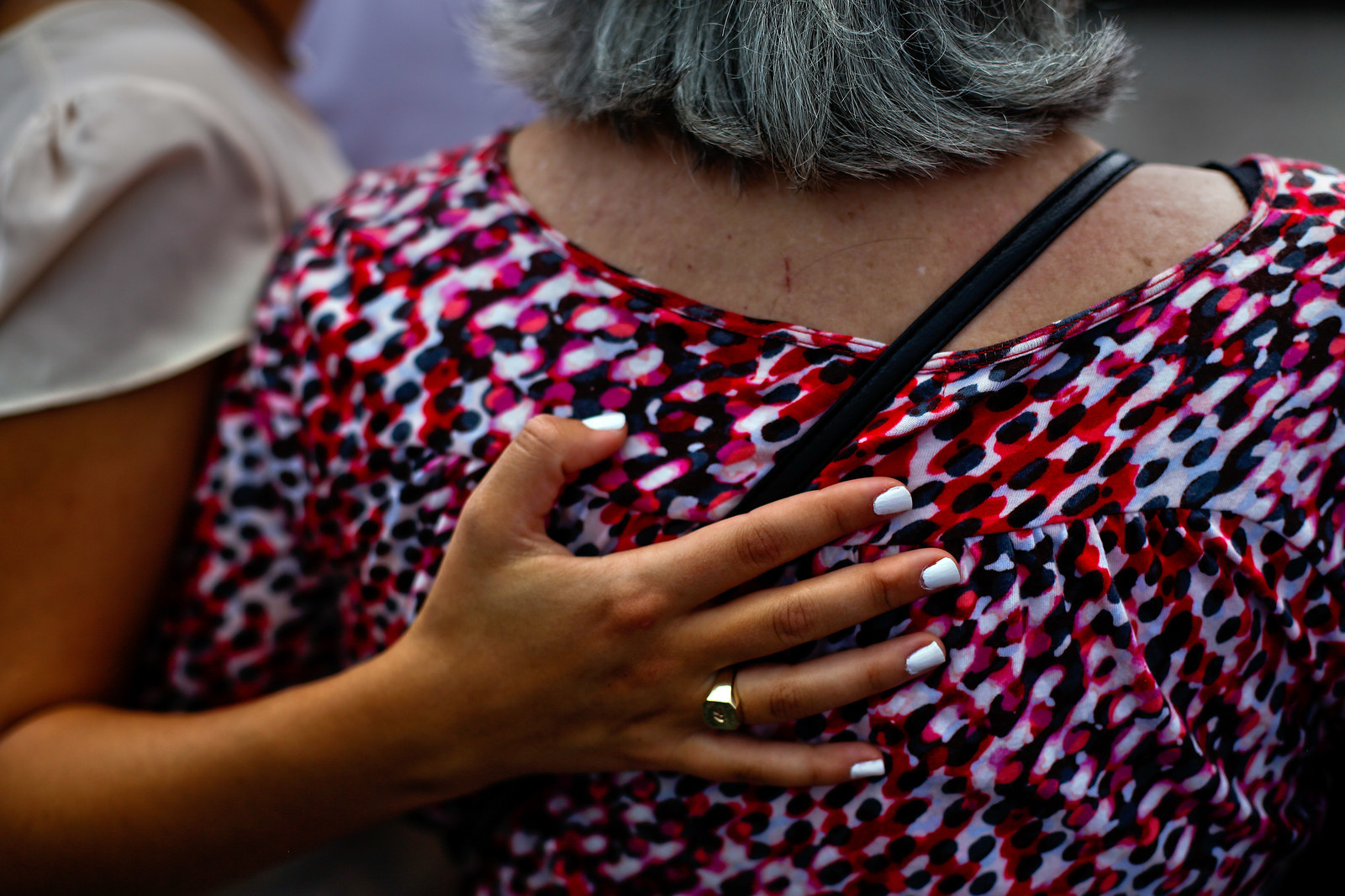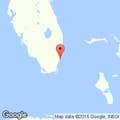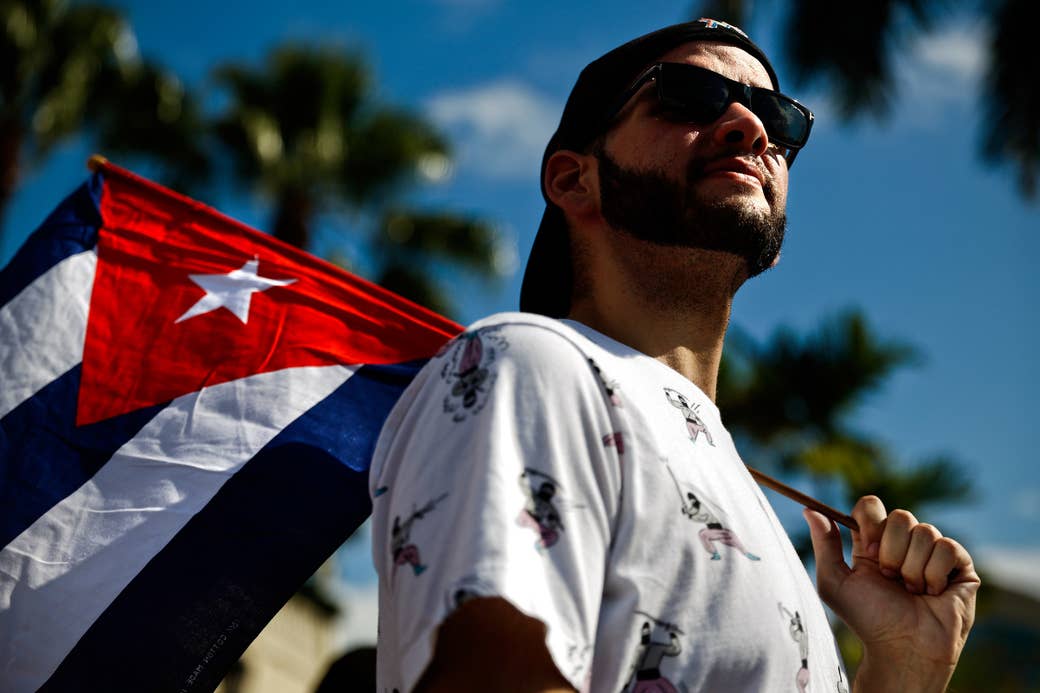
MIAMI — Like many Cuban-Americans, Daniel Rodriguez grew up in a family who regularly joked about what they would do on the day Fidel Castro died.
At dinners and parties across Miami, the death of the man they both feared and despised was something they had dreamed about for years.
On Friday, the dream came true.
“Now we’ll have to make new jokes about his brother, Raúl," Rodriguez said, waving a Cuban flag.
Rodriguez, 26, never lived in Cuba or suffered under Castro's rule firsthand, but he was raised on stories from his parents and grandparents, who left everything behind to start news lives here in the US. A hatred for Castro was something to be handed down from generation to generation.
“It’s ingrained in every Cuban,” Rodriguez told BuzzFeed News on Sunday outside Miami's iconic Versailles restaurant in Little Havana, a neighborhood named for the Cuban capital. “They kept what he did to them alive in us. Wounds tend to heal, but they don’t want to heal, they want justice.”
Leaning on her cane, Rodriguez's 73-year-old grandmother, Caridad Hernandez, recalled how in 1969 she fled to Miami on a flight with Rodriguez’s mother, who was 5, shortly after her husband was jailed for stealing medicine.
“We suffered a lot and we passed all the misery from Cuba to our kids and grandkids so they wouldn’t forget,” she said.
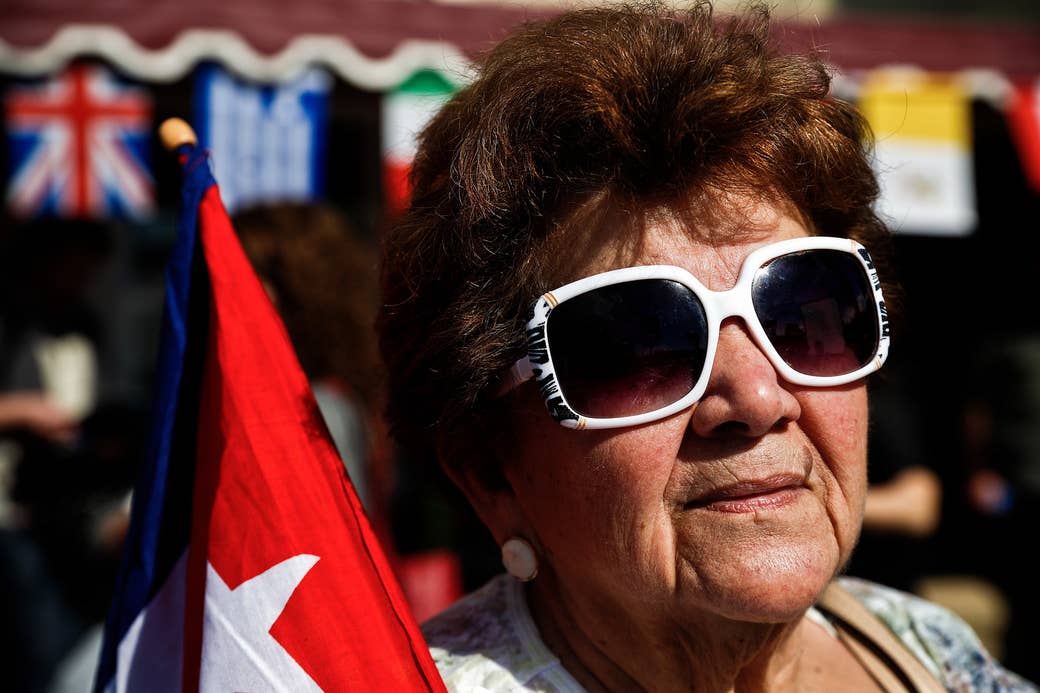
On Saturday night, some 24 hours after news leaked out from Havana of the death of El Comandante, Jorge De La Pedraja, 51, joined dozens of people celebrating on the streets of Little Havana, waving Cuban flags and dancing to the beat of drums on 8th Street, known as “Calle Ocho.” Most people were smiling and chanting “Viva Cuba,” while a few danced with tears in their eyes.
“I’ve never known a life without Fidel, he’s always been a part of my life. This tyrant, dictator, murderer, torturer who was just a few miles away from the United States,” De La Pedraja told BuzzFeed News. “He represented an idea and revolution of Cuba. Once he’s gone at least it’s a step forward.”
As a group of people banged on pots and pans to mark the end of an era, and the death of a symbol, De La Pedraja said he had high hopes for Cuba’s future.
“My hope is that one day they’ll have democratic reforms, that the economy gets rebuilt,” De La Pedraja said. “And that someday we can all go back.”
Guillermo Miralles stood on the outskirts of the celebration, watching the crowd before heading home around midnight on Saturday. He said his parents were kicked out of Cuba by Castro’s government after his father was put in jail and forced to hand over his land.
Though he considers himself an American first, Miralles said he’s also proud to be Cuban. He said Cuban-Americans like him refer to themselves as hybrid Cubans.
“We walk around with no identity because Castro took that from us,” Miralles said. “Thankfully, our parents never let us forget their struggles and suffering, and that’s what we’re celebrating here.”
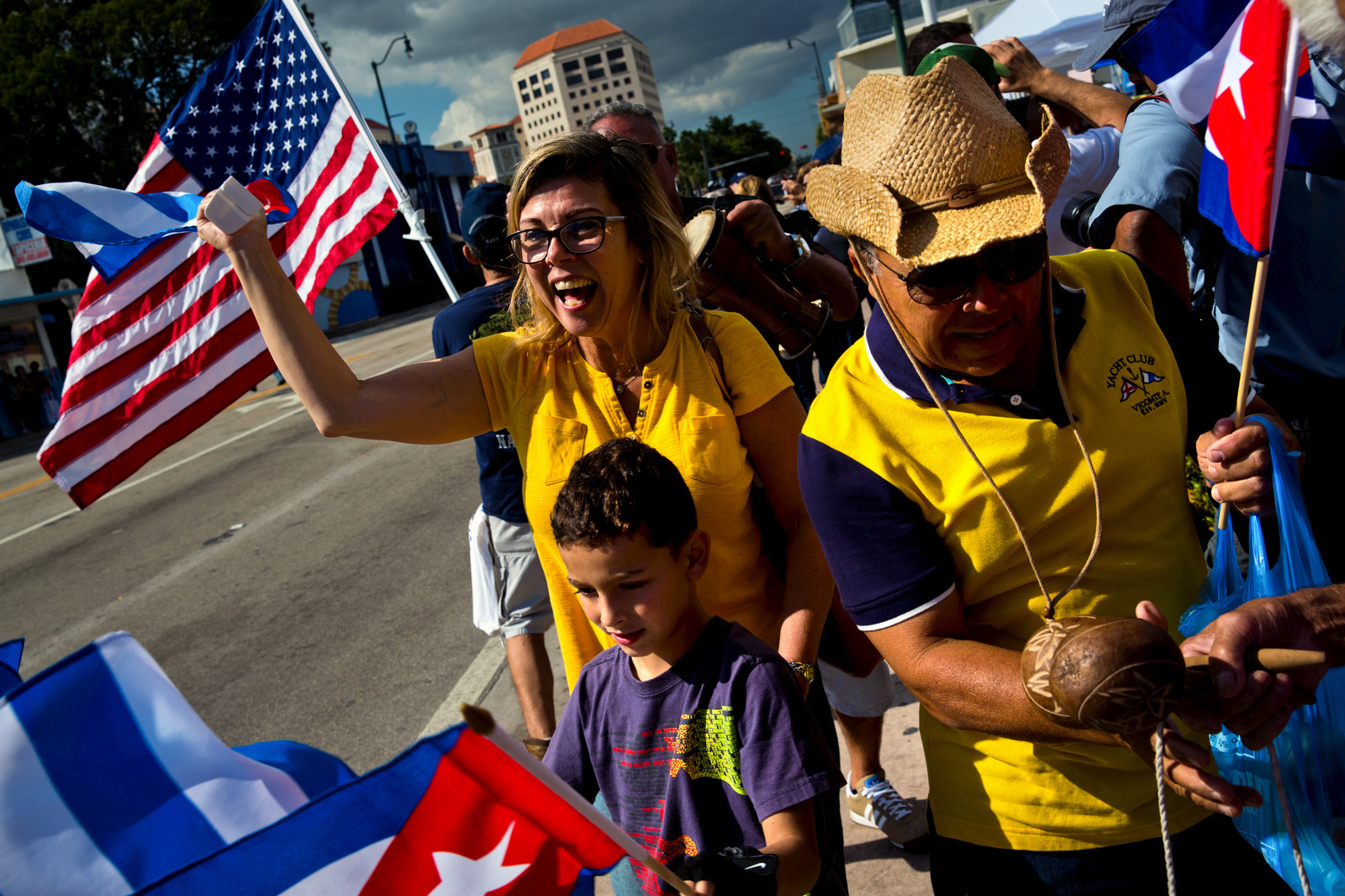
For Luis Garcia, the celebrations were bittersweet because his grandparents and other family members died before they could witness the death of the man who forced them to leave Cuba in 1960.
“They never got to experience the death of a dictator that ruined many, many lives,” Garcia said. “I was born in America but my parents lost everything because they confiscated everything they had and they jailed some of our family members in Cuba.”
Garcia said he hopes that one day the millions of Cubans living on the island will have the freedom to voice their opinions, just like the people who took to the streets here in Miami.
Diana Pascual, 56, had rushed with her 21-year-old daughter to Little Havana to be a part of history and celebrate the death of a man who had come to symbolize oppression.
“It’s very weird that you should celebrate a death, but this is more — this is hope for a better future in Cuba,” Pascual said.
Pascual doesn’t have many memories of Cuba because she left when she was 6 years old, but she does remember the night her home was stormed by armed Cuban authorities who falsely accused her father of hiding dissenters.
Her immediate family flew to Miami in 1966, leaving behind aunts and uncles, some of whom have since died. Her parents' generation thought they would be able to return to Cuba after a few years once Castro was killed, Pascual said, but that day never came.
Even after Castro stepped away from power in 2006, ceding control to his younger brother, Pascual’s parents swore they would not return to their homeland until the Castros were gone for good.
“But now that they know they can’t go back, they at least don’t want [Fidel Castro] living anymore,” Pascual said. “At least they got that.”
